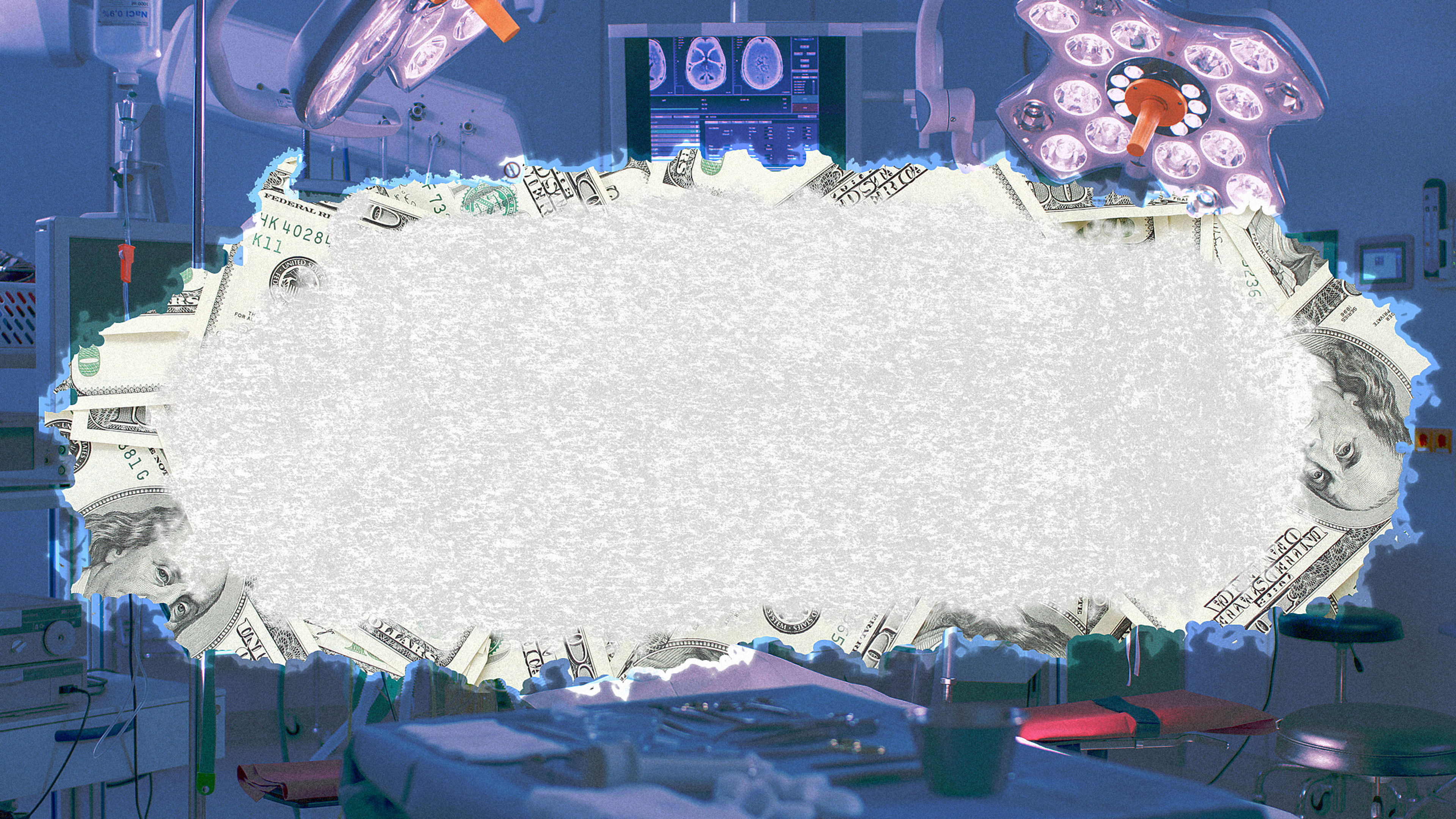Last year, when Alexandria Venable’s 3-year-old daughter, Scarlett, caught RSV—a respiratory disease that can be dangerous for young children—she ended up in the hospital twice. The bills added up to more than $5,000. Venable, a single mother and a social worker in Dallas, didn’t know how she could pay. She was already paying off thousands of dollars from another hospital bill for an ear surgery for Scarlett, whose health insurance had temporarily lapsed.
A friend suggested an organization called Dollar For, a nonprofit that connects patients who have medical debt with a type of financial support called charity care. Under the Affordable Care Act, nonprofit hospitals are required to offer free or reduced care to patients who meet certain income requirements. It’s an option that few patients know exists.
Venable hadn’t heard of charity care prior to connecting with Dollar For, whose volunteers helped her submit an application to the hospital, Cook Children’s. A month later she learned that her bill had been fully waived. “When it came to medical bills, I was under the impression that you just paid them as you could even if it was only $10 a month—you pay it,” she says. “It was a massive weight off of my shoulders to receive the help. With the cost of living ever rising, it felt like we could never catch up.”
Dollar For started in 2015, after founder Jared Walker saw family members struggle with medical bills. “I wanted to help people avoid the financial crisis that comes with a medical crisis,” he says. At first, that meant grassroots fundraising at community events at coffee shops, breweries, and music venues. But a few years later, Walker happened to meet an attorney who told him about charity care.
“I felt like a chump, because I’d been paying all these medical bills for people who would have been eligible for these programs if I knew about this,” he says. “I thought, okay, instead of trying to pay all these medical bills for one family at a time, maybe I can dig into these policies and enforce hospital charity care, because nobody knew about it. I started filling out applications and advocating for patients, and in a few months I got over a million dollars of medical bills written off for people.”
In 2021, Walker’s TikTok explaining the process went viral. “At the end of the video, I tell people, ‘If you need help, just DM me,’ because I’m expecting like 10 people to see this video,” he says. “The response was insane. We had tens of thousands of messages through Instagram, Facebook . . . Someone posted it to Twitter—that video has over 10 million views. . . . At the time, Dollar For was just me. I was totally overwhelmed.”
The need is immense: One analysis suggests that 100 million Americans have medical debt. Around a quarter owe more than $5,000, and roughly one in five say they don’t think they’ll ever be able to pay it off.
Volunteers started to help Walker work with patients one by one to find out who was eligible for charity care and to assist with applications. They built a database of thousands of hospitals—each of which has unique requirements for eligibility—so that patients could use a simple web tool to find out if they can use the program at their hospital. Nearly 60% of U.S. hospitals are nonprofits, and another 19% are run by state or local governments.
Fast Forward, a startup accelerator focused on tech nonprofits, has been working on further automation to make it easier for patients to apply. (In some cases, hospitals still ask patients to send in forms by fax, something that doesn’t exactly make it accessible; Dollar For’s tool will be able to automatically fill out the forms online and then fax them itself.)
To date, Dollar For has helped patients eliminate more than $25 million in medical debt. And it’s beginning to push for change at a broader level. “We collect a tremendous amount of data, and we know what hospitals are bad actors,” Walker says. “We can see what patients are dealing with at each hospital. So we’ve been able to use the patient data and patient stories to approach the hospitals that are the most predatory or are doing the worst.”
So far, more than 40 hospitals have changed to policies that are more patient-friendly. For example, staff in the financial assistance department at one East Coast hospital incorrectly believed that childbirth wasn’t covered by charity care; Dollar For noticed the trend and talked to the hospital, which subsequently had staff retrained and records audited to contact prior patients who had been affected.
The organization is also working to strengthen state policy and enforcement in Oregon. The state already has a law that requires hospitals to forgive debt for emergency or medically necessary care for patients at or below 200% of the federal poverty level. The law also says that hospitals shouldn’t send those patients’ bills to debt collectors—but the nonprofit has found that it routinely happens anyway.
As Walker says: “The work is really about trying to change systems.”
Recognize your brand’s excellence by applying to this year’s Brands That Matter Awards before the early-rate deadline, May 3.
